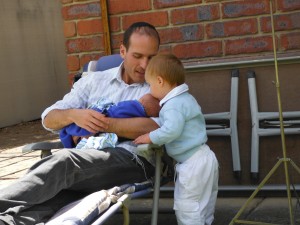Parshas Beshalach: Finding Motivation
We hope you have all enjoyed your summer/winter break. For those who have been on holiday, we hope you have had safe and pleasant journeys. But every holiday must come to an end and then it is time to head back to work (or school).
Usually, going back to work (or school) is not very much fun. Most people are not excited to head back to the office or the classroom the way they were excited to go on holiday. Still, most of us have things in life we must do, even if we don’t enjoy them much.
We all have different things that motivate us. Some people are motivated by the carrot (the reward they will get for doing something) and others are motivated by the stick (the repercussions for not doing something). Either way, we all have our reasons for getting something done. I might clean my kitchen because I love the way it looks when the counters are clean and shining or I might clean it to avoid getting bugs, but either way the unpleasant task will be done.
In this week’s parsha, the Jews might not have been so excited to head out into the desert. After all, they are not gone from Egypt for very long before they get stuck at the Reed Sea and some begin suggesting that perhaps it would be best to just turn around and go back. And even once they’re across, many of the Jews complain they miss the foods they are familiar with (like cucumbers and watermelon) from back in Egypt. So it’s likely that many of them weren’t all that motivated to leave Egypt.
So why did they leave, then?
Well, the slavery was not exactly pleasant. And once Moshe (Moses) approached Pharaoh to ask for the Jews’ freedom, he intensified their suffering. Not only that, but the Egyptians came chasing after the Jews. If Pharaoh was angered by being asked to free the Jews and made their work harder, imagine what he would do to those Jewish slaves he managed to catch and bring back! Those Jews who were motivated by the carrot no doubt envisioned that life in the desert would have to be better than life as a slave in Egypt, while those Jews who were motivated by the stick had been beaten down enough by Pharaoh to ensure a swift exit, even into the desert.
Sometimes G-d gives us similar motivations in our lives. These motivations can come in all shapes and sizes. G-d gives us babies who smile at us if we change their diapers – or smell bad we don’t. He gives us changes, challenges, and opportunities in our lives to motivate us to better keep the mitzvot. We can choose to be motivated by the carrot – the good that will come to us if we keep the mitzvot – or we can wait for the stick to prod us in the right direction. Either way, it is up to us to find the motivation to move in the right direction, even if it isn’t always pleasant or fun at the outset.
Here’s wishing everyone the motivation to get done the things they need to!
Shabbat shalom!
Read more on Parshas Beshalach: Facing Our Fears Head-on
Read more on Parshas Beshalach: Never Judge a Book by its Cover
Read More





